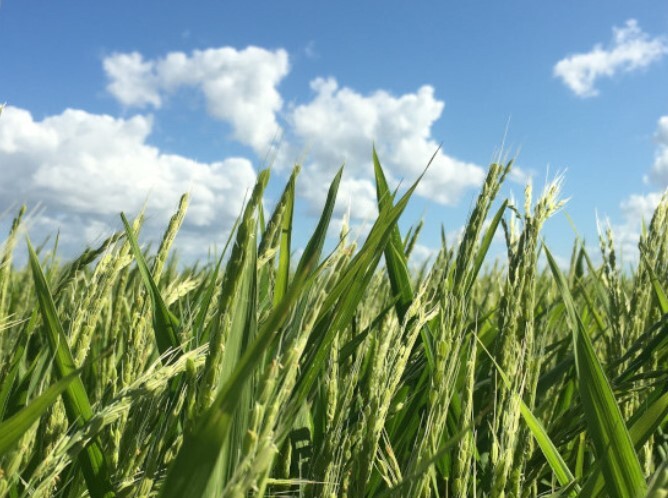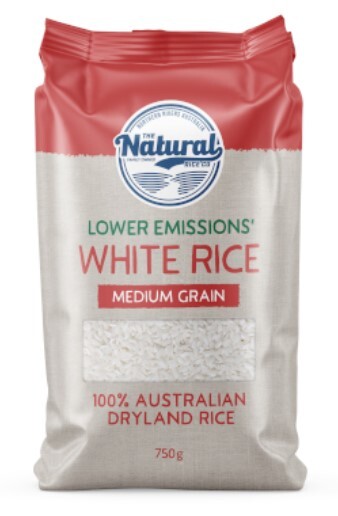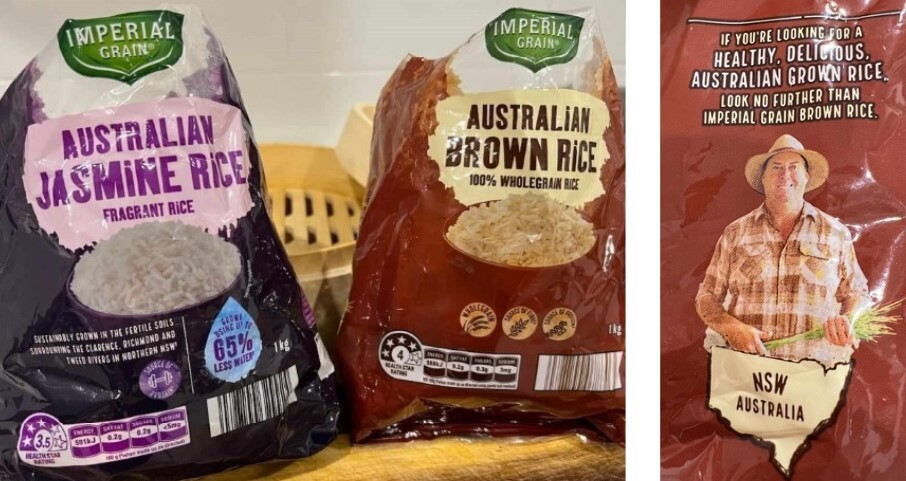Northern Rivers Rice Industry is set to grow
Lara Leahy
03 June 2024, 8:02 PM
 Rice is nice. And becoming nicer!
Rice is nice. And becoming nicer!The market for rice grown in NSW is about to open up to a larger audience giving the local industry in the Northern Rivers a very welcome boost, which could lead to more growers and more money in the region.
The NSW government is introducing a Bill in the State Parliament to “end statutory rice export marketing” or” vesting”. Currently, only one producer has the right to export rice in NSW. This Bill gives all growers the ability to export.
The legislation, which will be introduced to Parliament this month (June), will enhance the long-term viability of the state’s rice industry, which had an estimated farm gate value of $219 million in 2022-23.

(The stalk that the rice grows on is called the Pinnacle)
Speaking with Steven Rogers from The Natural Rice Co, “We are looking at a 6 to 10,000 tonne market locally at the moment. We bring it in, we dry it, handle it, we mill it and then pack it into retail packs at Kyogle. It gets sold at Aldi and Coles, it is used in food service and also pet food.”
Every four years or so, the government would assess the state's vesting arrangements. “We lobbied for us to be segregated away from vesting three times. We are 1500 kilometres away from the Riverina (where the major vested company operates). We should have an opportunity to export.” Steven said.
“I had a New South Wales DPI report that said vesting should be abolished, there's no real need for any single export licences anymore. But Dugald Saunders went against the DPI report and said no, I'm going to keep vesting going for another five years.
“He had engaged ABARES to do an investigation into it, probably thinking that ABARES was going to come back with what he wanted to hear, but they didn't. They came back and said it should be abolished. So that went to Ms Moriarty’s desk, and after some time, we were granted the change. So it was good news for us. We finally won!”
Ms Moriarty acknowledged the efforts, “Growers in the Northern Rivers region have long advocated for a change to vesting, and southern growers have recognised the need for greater commercial flexibility to respond to future challenges.”
Steven is pleased with these results: “Our argument when lobbying is that it hinders investment. You don't want to spend $20 million on infrastructure, only to be limited to the domestic market.
“We're always at risk. Our competitors are just dumping cheap rice and knocking us out of the game. Now we have access to export markets, we have a little bit more flexibility and more confidence to invest.”
The Natural Rice Co would look at “Storage first. And then a mill upgrade. And then distribution warehousing. Ideally, over the next five years, it will need about $15 million of investment.”
“We have a niche industry - we focus on our point of difference, which is our environmental improvements with rice. We produce rice but don’t use paddy fields, we grow on dry land or Dryland Rice. As a result, we have a much more sustainable product with low emissions. Rice is responsible for 14% of the world's greenhouse gas emissions, so people are interested in a low emission rice.”
It may come as a surprise, but the rice you are buying in Aldi or Coles might have been grown in a paddock you drive past locally. There are three main producers of rice products in the Northern Rivers, and one supports around 30 local growers.

Currently, the major rice being produced by the Natural Rice Company is white, brown and jasmine, medium and long grain varieties. Steven said, “We're currently breeding some black rice varieties for the area at the Southern Cross University. There's no Australian-grown black rice at all. However, we're years away from releasing it commercially.”
Local growers, Alan and Monica Anderson, are pleased with the news. “This makes us as producers more confident, and we're more likely to increase the scale of our operations.”
The market is the major deciding factor for crop selection, and the market is opening up. Monica explains that they grow sugar cane and use rice as a break crop. “With the confidence in the rice industry, you might then look at other options and increase the rice yield.
“We get a lot of interest from people as they drive past (Ross Lane, Lennox Head) and see the rice. We can start to have that conversation - maybe that's something I could grow on my farm!”

(Locally grown rice products at Aldi, has local grower, Alan Anderson, on the side of the pack.)
Steven talks about the potential for the industry, “There is a platform called the Sustainable Rice platform, which is a global organisation that's trying to get people to switch over to what we're doing with Dryland Rice. Big companies like Kellogg's and Mars food are now leaning towards only using Dryland style rice.”
The Northern Rivers rice industry has the opportunity to grow, Steven says that 50,000 tonnes is possible from the region.
If you are interested in growing rice, check your paddocks. If they are flat and boggy, you have the right conditions. “So we predominantly look for waterlogged paddocks that typically cause a problem for other crops.” On a hill, there is a risk that the water may not hold, and the plants can dry out too quickly.
For more information, contact Steven Rogers at the Natural Rice Company for more information.

